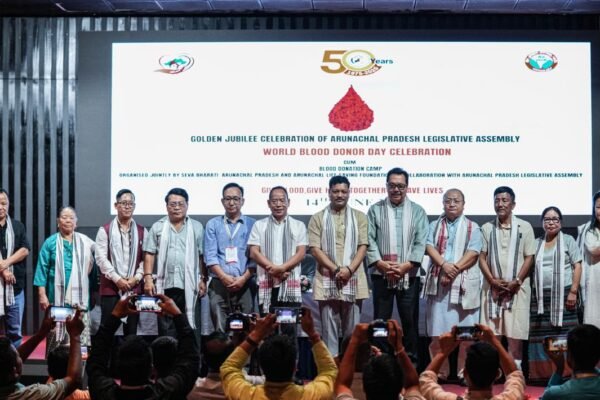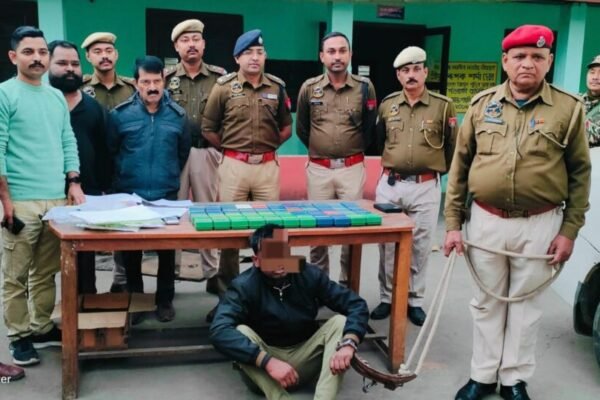Agartala, January 24, 2025: Tripura’s Tulashikhar Block in Khowai district witnessed a groundbreaking event on Friday with the launch of the Pancha Biovillage 2.0 project. Science, Technology and Environment Minister Animesh Debbarma led this innovative initiative by the state’s Biotechnology Department has already garnered recognition from NITI Aayog for its transformative potential.
Minister Debbarma lauded the department’s efforts and the success of the 21 biovillage projects implemented so far. “This initiative is not just about technological advancement but about uplifting lives and creating sustainable livelihoods. The recognition from NITI Aayog is a testament to the project’s success,” he stated.
At the launch, 318 beneficiaries from five villages under Tulashikhar Block were provided with resources, including 1,272 LED bulbs, 318 solar-powered state lights, 47 battery-operated 16-liter sprayers, and 330 liters of organic liquid fertilizer.
The villages of Purba Behalabari, Vidyabil, Paschim Rajnagar, Paschim Champachhera, and Purba Takchaya, once obscure, are now gaining national attention due to the Biovillage 2.0 project. These villages, predominantly inhabited by tribal and Oriya communities, have become symbols of sustainable development.
Anjan Sengupta, Joint Director of the Department of Biotechnology and the visionary behind Biovillage 2.0, shared his journey. “When I conceptualized this project, I never imagined it would reach such heights. The first biovillage, supported by ONGC Tripura in 2018, laid the foundation for this transformative model,” he said.
The initiative began with the establishment of five tribal biovillages, a first in the country. Today, the model has expanded to 26 biovillages across Tripura, addressing community-specific needs through sustainable solutions.
Abla Debbarma, a tribal resident of Paschim Champachhera, expressed her gratitude. “We’ve received energy-efficient piglets, solar-powered lamps, and materials for rearing animals. This project has brought hope and a new way of life for us,” she said.
The beneficiaries are provided with customized support, ranging from livestock and poultry to biogas and beekeeping materials. “The focus is on empowering communities with resources that match their needs and preferences,” Sengupta explained.
This project, hailed as a milestone in rural development, continues to set a benchmark for innovation and community upliftment in Tripura. As Minister Debbarma aptly summarized, “Biovillage 2.0 is not just a project; it is a movement towards self-reliance and sustainability for our tribal communities.”









